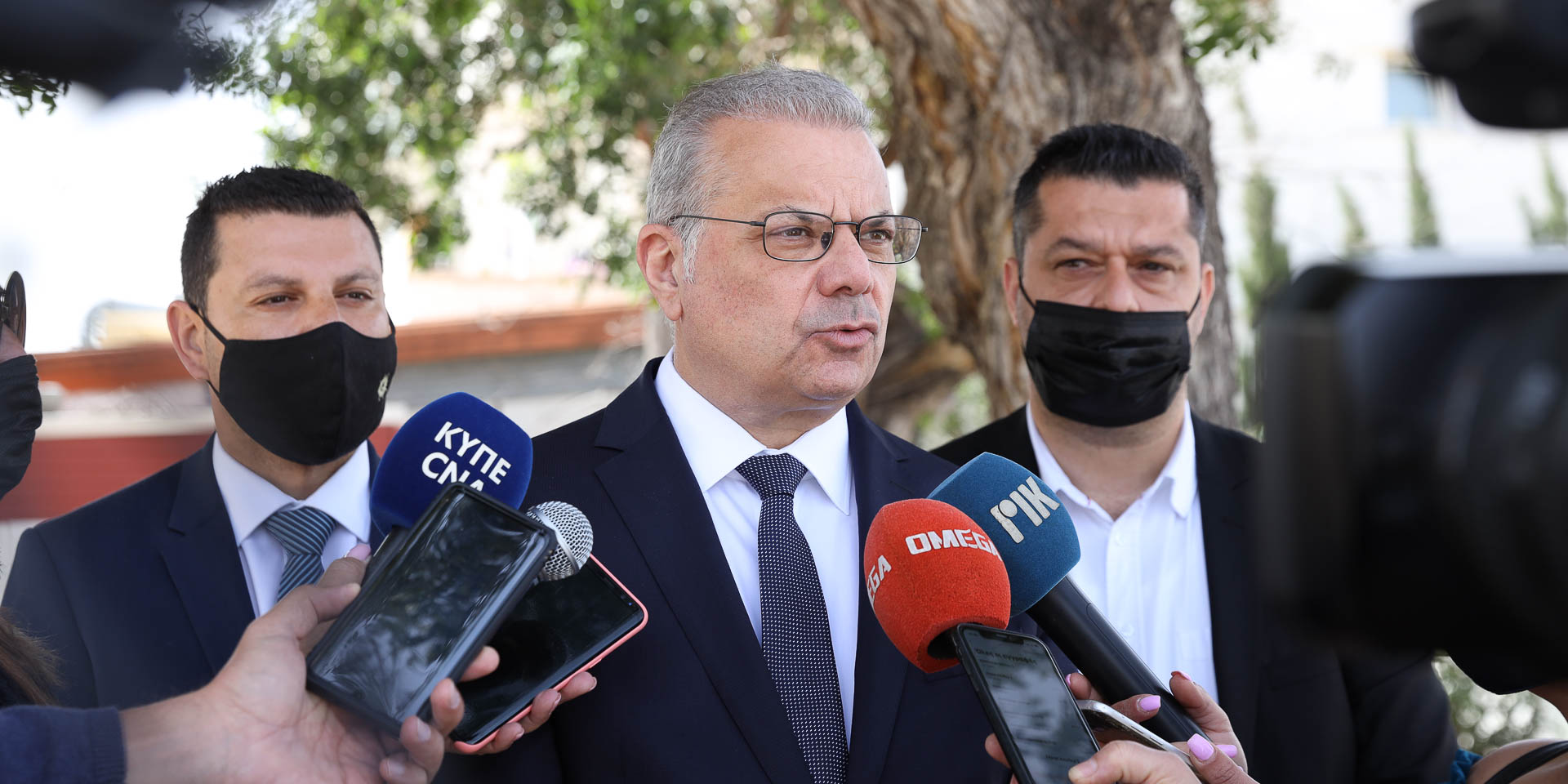- PolyPassport
- Posts
- A dual citizen's $2.72 million tax mistake
A dual citizen's $2.72 million tax mistake
We ask an expert about the biggest US Supreme Court case you've never heard of.
PolyPassport exists because the world is so much bigger than your backyard. Thanks for taking us on your journey.

On the docket today:
A dual citizen's day in court. An expert lays out the stakes for a US Supreme Court case that will impact millions of American taxpayers abroad.
Hong Kong? BNO, thank you. More and more Hong Kongers are settling in the UK through the country's British National Overseas (BNO) program.
Canada's man in Bollywood. One of India's biggest movie stars is sick and tired of defending his Canadian citizenship.
Coming to the US Supreme Court: A dual citizen's $2.72 million tax mistake
The United States has the distinction of being one of only two countries in the world that levies taxes on citizens no matter where they live or work. The other is Eritrea.
Citizenship-based taxation can be a massive headache for US expatriates, involving heaps of paperwork and punishingly high costs if their tax situation happens to be complex.
Some of those costs will soon be examined by the highest court in the United States. The nine judges of the US Supreme Court will hear arguments and determine whether Alexandru Bittner, a dual Romanian-American citizen, is liable for a whopping $2.72 million fine or a "mere" penalty of $50,000.
His crime? Bittner was unaware that US tax law required him to report his 272 (!) foreign bank accounts, and he failed to file the right paperwork over a five-year period. One interpretation of the law says he owes $10,000 per unreported bank account, or $2.72 million. Another maintains he should only pay $10,000 for each year he failed to comply with the rule, in other words, $50,000.

The Supreme Court of the United States in Washington, DC. Credit: Ian Hutchinson/Unsplash
It may be the one of the biggest court cases you've never heard of. The decision, which could come next summer, will impact some 9 million Americans living abroad.
We decided to take a closer look. PolyPassport spoke to Mishkin Santa, principal and director of international tax at The Wolf Group, a firm specialized in cross-border tax matters.
The following Q&A has been edited for clarity and length.
POLYPASSPORT: What's the significance of Bittner vs. United States?
So the big issue here is the [Report of Foreign Bank and Financial Accounts (FBAR)] penalty.
If you fail to file the FBAR or file it incorrectly and come under audit, in some cases the IRS has been assessing the $10,000 penalty by form. In other cases, auditors have been assessing the $10,000 penalty by account. The interpretation of how the penalties are applied is not uniform and it can lead to wildly different results.
There's a strong argument that it is excessive to give someone penalties of $2.72 million for failure to file an FBAR. That could be a violation of the eighth amendment [of the US Constitution, which bans excessive bail, excessive fines, or cruel and unusual punishments]. This is something the Supreme Court will have to address.
POLYPASSPORT: Is Bittner an outlier? Just how common is this sort of transgression?
He's not an outlier per se. But I'm more worried about other things, not necessarily FBARs. The most penalized IRS form in my opinion is Form 3520 and 3520-A [which report transactions with foreign trusts and receipt of certain foreign gifts.] There tend to be egregious penalties of up to $800,000 on these forms. It's just insane. Plus, they cannot be electronically filed and may have different deadlines than the US tax return deadline.
POLYPASSPORT: Ouch. So what do the tea leaves say? Will Bittner get leniency?
You never know how the Supreme court will decide things, right? Their decisions don't always comport with what you think they would do. But I'm hoping they see this is a huge issue and will limit penalties to by form and not by account. $50,000 is a big enough penalty.
Do you honestly think you can remember every single bank account you have had? Do you know which bank you were banking with in college? That's a huge ask right there, and offshore banks can be very antiquated. They may not even have the data you're looking for.

US expats wade through tons of tax paperwork every year. Credit: Olga Delawrence/Unsplash
POLYPASSPORT: No matter the outcome, will this create space for debate on citizenship-based taxation in the US?
I highly doubt it. The problem is that the United States would basically have to start playing ball with the rest of the world. For example, under [the Foreign Account Tax Compliance Act (FATCA)], we expect the rest of the world to give us data on US taxpayers living abroad, but we don't ever return that data to foreign countries. We will also never agree to be part of the Common Reporting Standard, which is used in Europe.
I think as a country we would have to change our entire policy on information exchange and providing information on US taxpayers to foreign countries, which I know a lot of people in Congress are against, at least right now. I think that would have to change drastically before you get to residency-based taxation.
POLYPASSPORT: What lessons should US taxpayers draw from this case?
I always tell people to keep it simple. It sounds really awesome to have all these cool things, "Oh, I've got a trust. I've got a company. I've got a really cool investment account," but in the end, those can end up being more hassle than they're really worth. When you're living within two different jurisdictions and you're having to comply with both, keep things as simple as possible. That's rule number one.
Rule number two is to make sure you get good, solid advice. Have a clear understanding of the foreign financial assets you find your way into. Whether it's a foreign retirement plan, a foreign brokerage account, a foreign trust, a foreign corporation, it will never be qualified under US tax code and will always default to something outside the normal course of treatment. If you get good advice, set it up properly, you can be fine as long as you understand what to expect and what's next.
POLYPASSPORT: Anything else you want to add?
We want people to save money for retirement. We want people to invest their money. In my opinion, it shouldn't matter whether that investment is with Fidelity Australia or Fidelity US. I think some of these rules we have are very heavy-handed, trying to make US taxpayers have US-based assets and only US-based assets. I think we can agree that we're more of a mobile and global society than we were in the 1960s and 1970s.
You can have rules to combat money laundering, fraud, tax evasion, and at the same time support retirement planning, investing money, things like that. We have some smart people in the world and I think both can be accomplished without stepping on each other's toes. It doesn't have to be as draconian as it was set up many years ago.
Hong Kongers vie for path to UK citizenship in record numbers

Passengers view flight departures in Hong Kong. Credit: Pexels
A stunning 181,000 Hong Kongers applied for British National Overseas status, or BNO, in just a three-month period. According to Bloomberg, it's a 15% jump compared to the end of 2021.
Historically, BNO passport holders could only stay in the United Kingdom for up to six months. But under a new rule introduced last year, BNOs and their families can work and study in the country for five years. That qualifies them for permanent residency, and if they can hold out for an additional year, full-fledged citizenship.
Facing encroaching Beijing rule and heavy-handed COVID-19 measures, more Hong Kongers left their city this summer than at any point in 60 years.
A Canadian passport, a Bollywood star, and a giant PR headache

Akshay Kumar and wife Twinkle Khanna. Source: Bollywood Hungama
Akshay Kumar is one of Bollywood's biggest stars, with over 15 million followers on Twitter. He's also a naturalized Canadian citizen, which doesn't always sit well with fans.
Indian outlet Lallantop was the latest to press Kumar on the issue and the mega celebrity didn't hold back.
“I have a passport. What is a passport? It is a document used to travel from one country to another. See I am an Indian, I pay all my taxes and pay them here. I have a choice to pay it there as well but I pay them in my country. I work in my country. A lot of people say things and they are allowed to. To them, I would just like to say that I am an Indian, and I will always be an Indian.”
Other headlines
Chatter
Just factually there are zero US senators with dual citizenship.
— Matthew Yglesias (@mattyglesias)
2:33 AM • Aug 26, 2022
Finally got my Ugandan passport too!
#DualCitizen 😎— Charles Denzel Mwiyeretsi (@DenzelUG)
9:18 AM • Aug 31, 2022
How hard is it to become a digital nomad?
I’ll tell you.
1. Learn a digital skill
2. Get a remote job
3. Earn $2k/monthLive comfortably anywhere in the world.
Super hard!
— Daniel Fálonípè (@ifdanieldid)
6:12 PM • Aug 28, 2022
If you can go digital nomad then follow the sun this winter. The cost of the flight and accommodation (if you’re smart) will be less than your energy bill at home.
Shutter the house and GTFO.
(You’ll miss the riots too and eat better).
Just do it.
— Sir James Miller (@JamesMillerHi)
8:14 PM • Aug 26, 2022
Quote of the week
"My O.C.I. status is a sort of heirloom, a beacon of an earlier generation’s hopes flickering faintly on the receding shore of the past."









